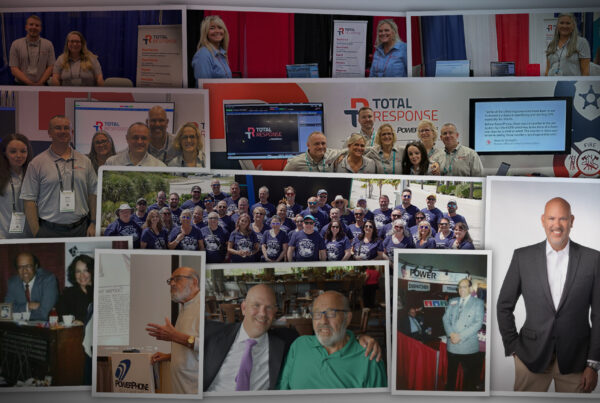04/02/24
Behind every successful emergency operation lies a team of highly trained 911 telecommunicators, ready to provide calm guidance and quickly gather important information in times of crisis. Give your telecommunicators the tools they need to be successful in their job, and you will help keep them in their seats.
Confidence in Crisis
Confidence is key in any high-pressure situation, and for 911 telecommunicators, it is indispensable. Comprehensive training equips them with the skills and knowledge needed to handle diverse emergencies efficiently. From medical emergencies to natural disasters, or even an officer down scenario, a well-trained telecommunicator can confidently navigate through any call, ensuring a timely and appropriate responses for every call, every time.
Investment in the Center
Training doesn’t just benefit the individual telecommunicator, but it helps all responders. It also fosters a sense of investment in the 911 center. When call takers feel prepared and supported, they are more likely to develop a strong attachment to their workplace.
Centers can cultivate a culture of excellence and commitment among their staff by providing training programs that prioritize skill development and professional growth.
Pathways to Advancement
For any professional, career advancement opportunities and training serve as the gateway to growth. It opens doors to specialized roles such as supervisory positions, training coordinators, or even management positions within emergency response organizations. By offering continuous learning and development opportunities, centers can empower their employees to chart meaningful career paths within the field and offer an additional incentive to stay at the center. Regardless of the industry, when a workplace invests in their employees, employees invest in the workplace.
Retention and Longevity
High turnover rates pose significant challenges for emergency communication centers. However, comprehensive training programs can be a powerful tool for retention. When telecommunicators feel valued, supported, and equipped to handle the demands of their role, they are more likely to stay committed to their careers for the long term. By prioritizing training and professional development, centers can reduce turnover rates and maintaining a stable, skilled workforce.
Training to Last
Training plays a multifaceted role in empowering 911 telecommunicators and improving the overall effectiveness of emergency communication centers. Training programs serve as a cornerstone of success in the world of emergency response. These programs instill confidence, foster investment in the center, provide pathways to advancement, and promote retention.
As technology evolves and new challenges emerge, continued opportunities for training will remain essential in ensuring that telecommunicators are prepared to meet the demands of their crucial role on the front lines of emergency response.
Are you training in a silo?
Training should not be treated as an afterthought. It’s an integrated part of your call taking process and should be a seamless part of your PSAP.
How do you train new telecommunicators at your PSAP? What about continuing education? Does your PSAP have any training requirements?
If you are having a hard time retaining talented telecommunicators, it may be time to reevaluate your current training platform. Having training options for your team that are in-depth, provide certifications, are consistent with local and federal requirements, and are available on-demand, can help you keep your team prepared and confident to take on any call.
Implementing a training platform like our Site Licensed Training, that is included with our Total Response decision support system, provides PSAPs with an easy, flexible, on-demand option to not only train effectively for their position, but grow professionally. If you’re looking for a fresh take on 911 telecommunicator training, check out our Site Licensed Training portfolio here.
An Investment in Your Team
Benjamin Franklin said it best, “For the best return on your money, pour your purse into your head.”
Effectively training your team is an investment in your team. A team that feels investment from their leadership, will continue to invest themselves into your PSAP.








